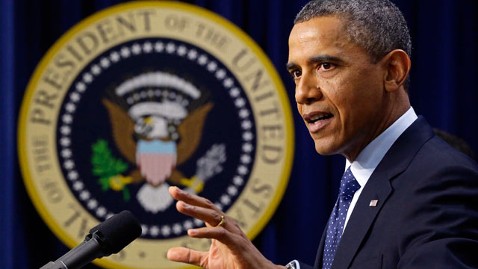Al Gore, who shared the 2007 Nobel Peace Prize for his fight against global warming, may gross about $70 million from the sale of his Current TV network to al-Jazeera, the cable channel funded in part by oil-rich Qatar.
Al-Jazeera will pay about $500 million for Current TV, including the stake held by Gore, 64, according to two people with knowledge of the deal. The network is one of dozens of investments made by the former vice president since he lost the 2000 presidential race by a slim margin.
“It’s reeking with irony,” said Jeffrey Sonnenfeld, senior associate dean at the Yale School of Management, who studies corporate governance. “It seems to be at least a paradox in terms of his positions on sustainability and geopolitics.”
The deal highlights Gore’s makeover from career politician to successful businessman. His take from the Current TV sale is many times the maximum net worth of $1.7 million he reported while running for president in 1999. Besides investing in start-ups, Gore is on the board of Apple, an adviser to Google and a partner at Kleiner Perkins Caufield & Byers, according to his Web site biography.
“The green of money knows no political boundaries,” said Charles Elson, director of the John L. Weinberg Center for Corporate Governance at the University of Delaware. “When you are running investments, your priority needs to be maximizing return.”
Gore’s holdings also include investments in Amazon.com, eBay and Procter & Gamble through his Generation Investment Management.
Gore holds a 20 percent stake in Current TV, according to those with knowledge of the deal, who spoke on the condition of anonymity because the sale terms are not public. His proceeds are difficult to pin down because the company had $41.4 million in debt, as well as preferred stock entitled to $99.5 million in the event of a sale or liquidation, according to a 2008 regulatory filing.
The Current TV price represents a sevenfold increase from the $71 million that Gore and his partners paid for the predecessor company in 2004, according to the filing. Gore, chairman, and Joel Hyatt, a co-founder and chief executive officer, announced the sale on Wednesday, without providing financial terms.
Kalee Kreider, a spokeswoman for Gore, didn’t respond to a phone call or e-mail request for comment.
The network’s investors included funds controlled by Los Angeles billionaire Ron Burkle and San Francisco money manager Richard Blum, according to the 2008 filing, when the company unsuccessfully sought to sell stock to the public. Blum is married to Sen. Dianne Feinstein (D-Calif.).
The Raine Group advised Current TV on the sale. The owners introduced Current TV in 2005 after purchasing the network from Vivendi.
Al-Jazeera is closely held and receives some funding from the government of Qatar, a small country on the eastern side of the Arabian Peninsula that gets almost half of its gross domestic product from oil and gas, data compiled by Bloomberg show.
“Under Qatari law, Al Jazeera Media Network is incorporated as a private, non-profit company,” Charlotte Fouch, a spokeswoman, said in an e-mail. “Al Jazeera receives funding from the State of Qatar, much like other publicly funded broadcast networks.”
Last February, Gore said investors in oil and gas companies that ignore the cost of carbon dioxide emissions and other greenhouse gases are making a mistake similar to those who invested in subprime mortgages.
Most of Gore’s investments are made through Generation Investment Management, which he co-founded with former Goldman Sachs Group executive David Blood. The most recent regulatory filing lists about $3.6 billion under management in 29 publicly traded companies.
In addition, Generation Investment Management also has stakes in private ventures such as Nest Labs, a company formed by Apple alumni to create a thermostat that adapts to user behavior and saves money. The fund also backed Elon Musk’s SolarCity, a developer of rooftop solar power systems that went public last month.
In April, Gore’s fund was part of $110 million in venture capital invested in Harvest Power, a closely held company that produces renewable energy from waste such as food scraps.
He is also the author of the climate-change-focused best-sellers “Earth in the Balance,” “An Inconvenient Truth,” “The Assault on Reason” and “Our Choice: A Plan to Solve the Climate Crisis.” Gore was the co-recipient, with the Intergovernmental Panel on Climate Change, of the 2007 Nobel Peace Prize for “informing the world of the dangers posed by climate change,” according to his official biography.





















